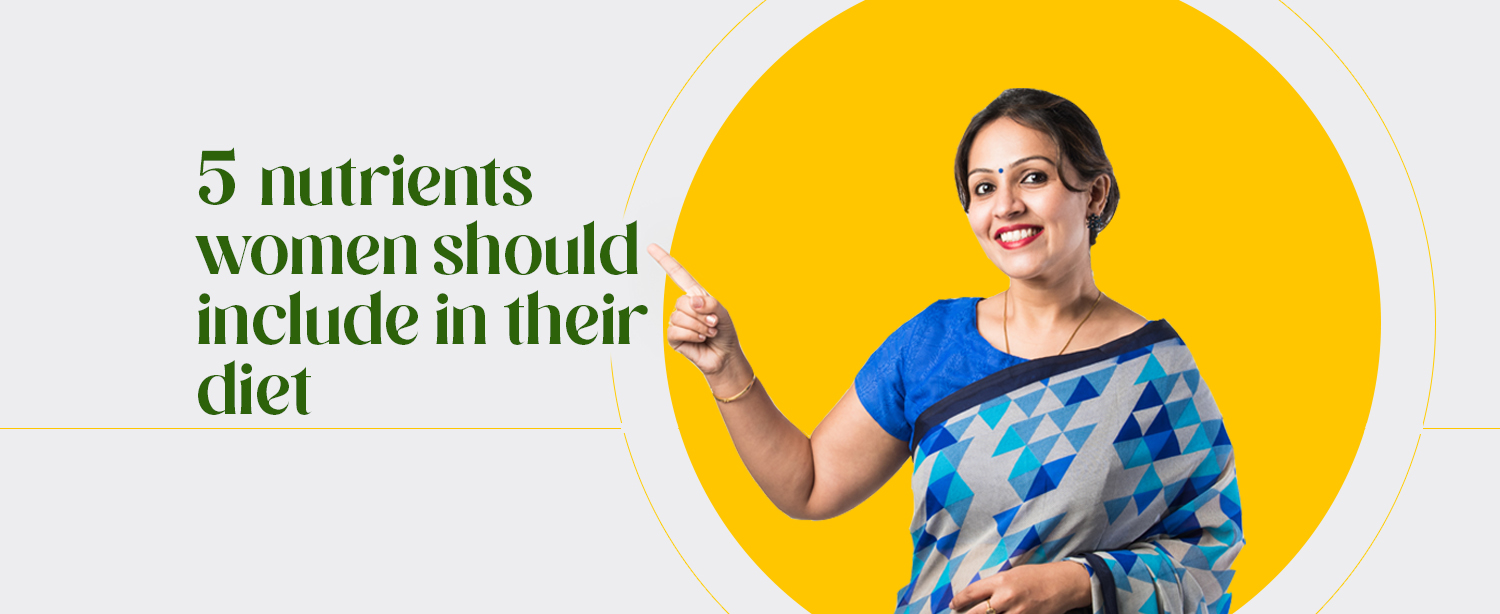Are you eating healthy? Malnutrition is a major issue among women in India, and around 40 per cent of Indian women are underweight when they begin their pregnancy. Pregnant and lactating women require additional nutrients to support the growth and development of their babies, but many women in India do not receive adequate nutrition during this time. Cultural norms around food, limited resources, orthodox eating practices and skipping meals to maintain a perfect figure are some reasons that contribute to poor nutrition among women in India.
50% Indian women are anaemic, where your body does not get enough oxygen-rich blood. This makes one feel tired and weak all the time. To address various deficiency issues, the Indian government has implemented programs aimed at improving women’s nutrition. Some key strategies for improving women’s nutrition in India include increasing access to nutritious foods, empowering women to make decisions about food and finances, and educating women and their families about the importance of a healthy diet.
Top five nutrients every woman should consume
With the fast-paced lifestyle and hectic schedules, women often tend to ignore their dietary needs, leading to deficiencies of vital nutrients in their bodies. Let us understand the essential nutrients that every woman should consume to maintain good health:
- Calcium
Calcium is a vital mineral that is essential for bone health. Women are at a higher risk of developing osteoporosis than men, making it crucial for them to maintain adequate calcium intake. Foods rich in calcium include dairy products such as milk, cheese, and yogurt, leafy green vegetables such as spinach and kale, and fortified foods such as cereals and orange juice. You must include this nutrient in your daily diet. - Iron
Iron is essential for the production of hemoglobin, a protein that carries oxygen throughout the body. Women are more likely to develop iron deficiency due to blood loss during menstruation. Foods rich in iron include red meat, poultry, seafood, beans, lentils, spinach, and fortified cereals. The consumption of iron is known to prevent anemia, fatigue, and weakness. - Folate
Folate, also known as vitamin B9, is essential for cell growth and development. It is especially important for women of childbearing age as it helps prevent birth defects of the brain and spine. Foods rich in folate include leafy green vegetables, beans, lentils, citrus fruits, and fortified cereals. Adequate folate intake also helps prevent anemia and promotes healthy hair, skin, and nails. - Omega-3 Fatty Acids
Omega-3 fatty acids are a type of polyunsaturated fat that is essential for brain health and reduces the risk of heart disease. Women tend to have a higher risk of developing depression and anxiety, making omega-3 fatty acids an essential nutrient for them. Foods rich in omega-3 fatty acids include fatty fish such as salmon, tuna, and sardines, walnuts, chia seeds, and flaxseeds. Sufficient intake of omega-3 fatty acids helps improve mood, cognitive function, and heart health. - Vitamin D
Vitamin D is essential for bone health as it helps the body absorb calcium. Women tend to have a higher risk of developing osteoporosis, making vitamin D an essential nutrient for them. The body can produce vitamin D when exposed to sunlight, and it is also found in fatty fish, egg yolks, and fortified foods such as milk and orange juice. Adequate vitamin D intake also helps boost your immune system.
Nutrition care at Kokilaben Dhirubhai Ambani Hospital, Mumbai
Consuming a well-balanced diet that includes all essential nutrients is crucial for women’s overall health and well-being. Adequate intake of calcium, iron, folate, omega-3 fatty acids, and vitamin D can help prevent various health problems, including anemia, osteoporosis, heart disease, and depression. Consult dietitians from our Department of Nutrition Therapy for a one to one meeting. We offer personalized nutrition plans and nutrition counseling services to help women achieve their dietary goals and maintain good health. So, let’s take a step forward to prioritize your health and make every day a Women’s Day.


